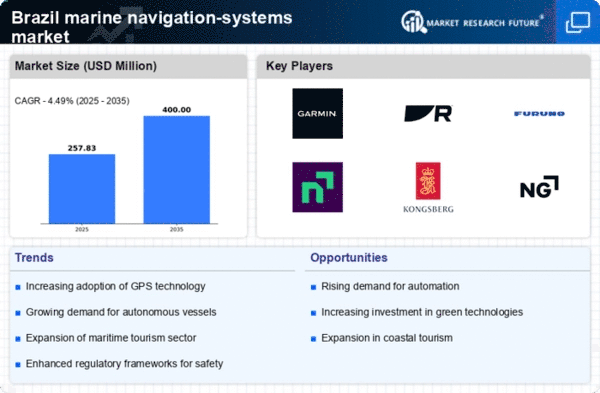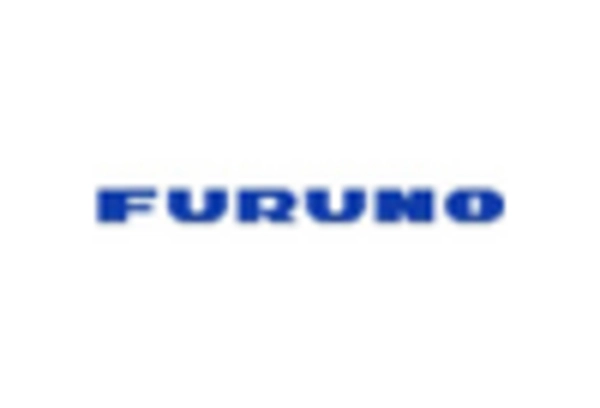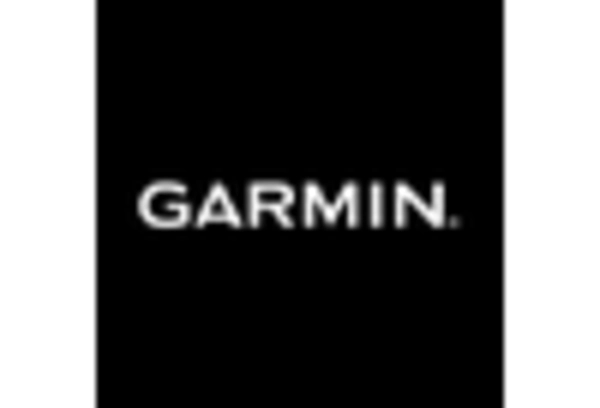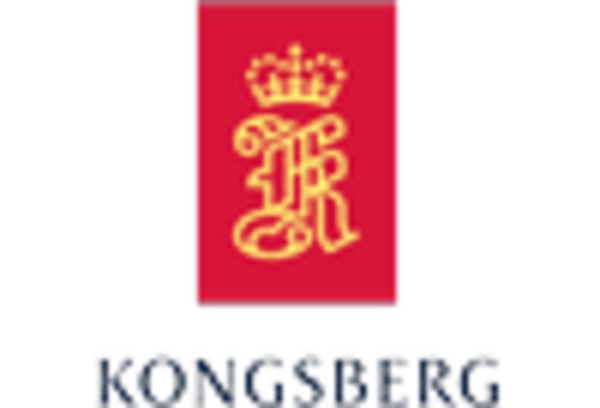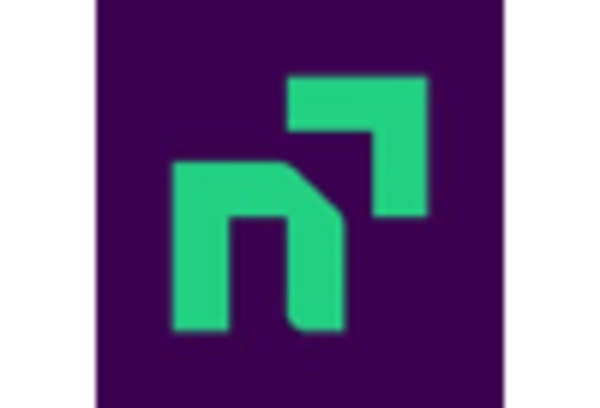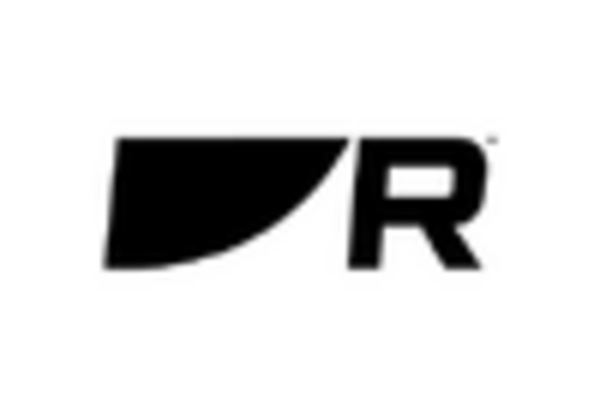Rising Environmental Regulations
Rising environmental regulations are increasingly influencing the marine navigation-systems market in Brazil, promoting sustainable maritime practices. The Brazilian government has implemented stringent policies to reduce the environmental impact of shipping activities, which necessitates the adoption of eco-friendly navigation technologies. These regulations encourage the use of systems that optimize fuel consumption and minimize emissions, thereby aligning with global sustainability goals. As a result, the market for environmentally compliant navigation systems is projected to grow by approximately 12% annually. This shift not only reflects a commitment to environmental stewardship but also presents opportunities for innovation within the marine navigation-systems market, as companies seek to develop solutions that meet regulatory requirements while enhancing operational efficiency.
Expansion of Maritime Trade Activities
Brazil's marine navigation-systems market is significantly influenced by the expansion of maritime trade activities. The country's strategic location and extensive coastline facilitate a robust shipping industry, which in turn drives the demand for advanced navigation systems. As trade volumes increase, the need for efficient and reliable navigation solutions becomes paramount. Recent statistics indicate that Brazil's maritime trade has seen a growth rate of around 10% annually, necessitating the adoption of sophisticated navigation technologies to manage increased traffic and ensure compliance with international standards. This expansion not only enhances the operational efficiency of shipping companies but also stimulates the marine navigation-systems market, as stakeholders seek to invest in systems that can support the growing demands of maritime logistics.
Investment in Infrastructure Development
The marine navigation-systems market in Brazil is poised for growth due to significant investments in infrastructure development. The Brazilian government has initiated various projects aimed at modernizing ports and enhancing navigational capabilities. These developments are crucial for accommodating larger vessels and improving overall maritime efficiency. With an estimated investment of over $5 billion in port infrastructure, the demand for advanced navigation systems is expected to rise correspondingly. This investment not only supports the operational needs of the shipping industry but also aligns with Brazil's broader economic goals. As infrastructure improves, the marine navigation-systems market is likely to benefit from increased adoption of cutting-edge technologies that facilitate smoother maritime operations and enhance competitiveness in the global market.
Technological Integration and Automation
The marine navigation-systems market in Brazil is witnessing a trend towards technological integration and automation. As the industry evolves, there is a growing emphasis on incorporating advanced technologies such as artificial intelligence and machine learning into navigation systems. This integration aims to enhance decision-making processes and improve operational efficiency. Recent analyses suggest that the adoption of automated navigation solutions could increase by 20% over the next five years, driven by the need for more efficient maritime operations. This trend not only streamlines navigation processes but also reduces human error, thereby enhancing safety and reliability. As Brazilian companies increasingly recognize the benefits of automation, the marine navigation-systems market is likely to experience substantial growth, fostering innovation and competitiveness.
Growing Demand for Enhanced Safety Features
The marine navigation-systems market in Brazil is experiencing a notable increase in demand for enhanced safety features. This trend is driven by the need to mitigate maritime accidents and improve overall navigation safety. As Brazil's maritime industry expands, the integration of advanced safety technologies, such as collision avoidance systems and real-time monitoring, becomes essential. The Brazilian government has recognized this need, leading to initiatives aimed at promoting safer navigation practices. According to recent data, the market for safety-enhancing navigation systems is projected to grow by approximately 15% annually, reflecting the industry's commitment to reducing risks associated with maritime operations. This growing emphasis on safety is likely to propel the marine navigation-systems market forward, as stakeholders prioritize investments in innovative solutions that enhance navigational safety.


